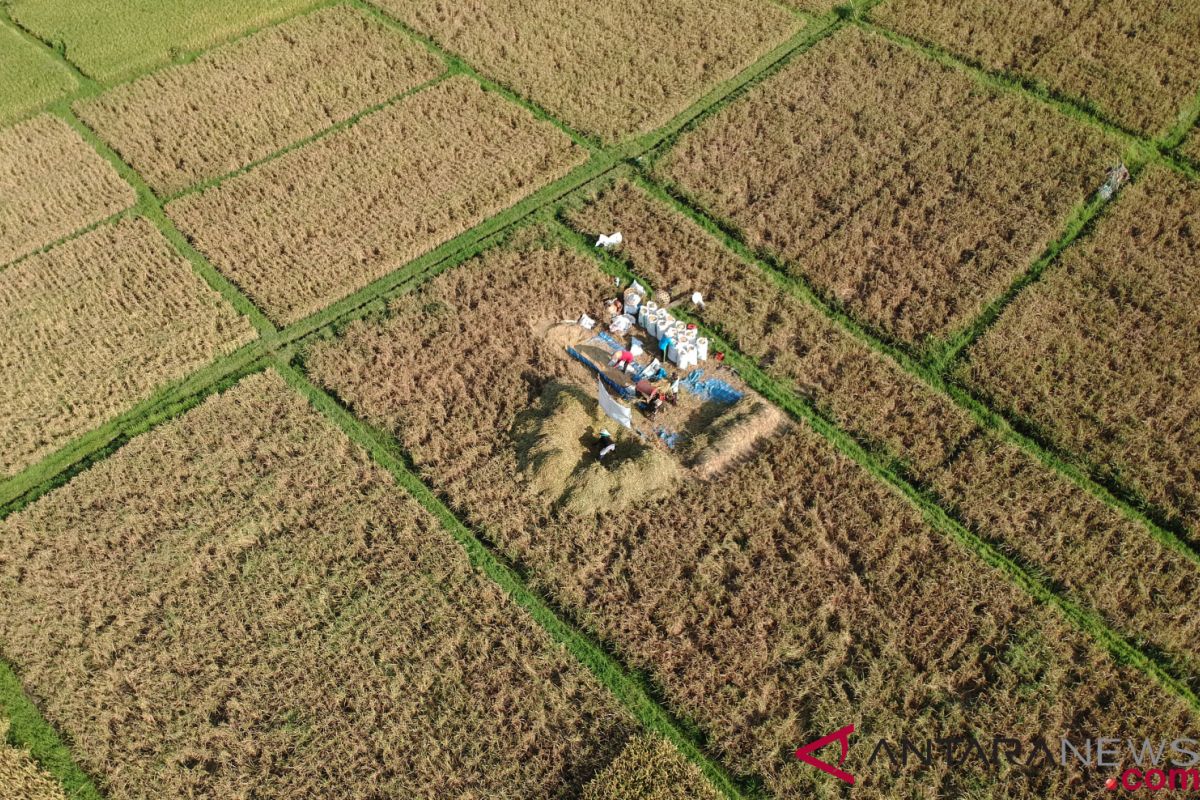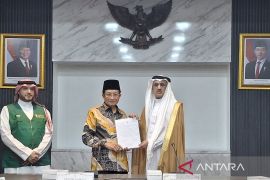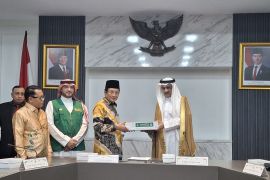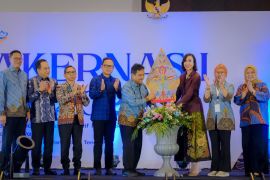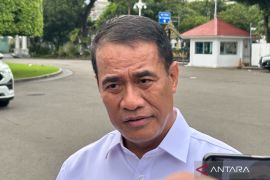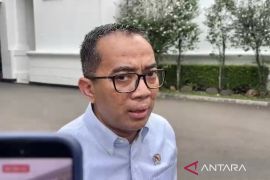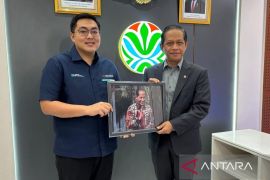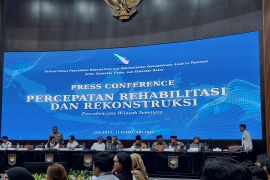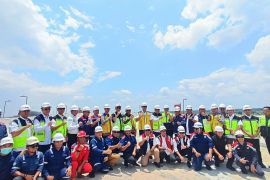Instead of feeding its people with the rice produced by its own farmers, the central government has repeatedly imported rice over the past years to meet its people`s needs. This condition has, indeed, become a serious challenge and a contradiction to Indonesia`s status as one of the world`s top agricultural countries.
In the past, Theresia Octastefani and Bayu Mitra Adhyatma Kusuma (2015) revealed in their article published in "Jurnal Politik dan Kebijakan Publik Vol.2 No.1 2015" that Indonesia had emerged as the world`s third largest rice producer after China and India from 2000 to 2008.
However, in the aftermath of 2008 and beyond, the country had no longer been able to produce sufficient rice stocks to meet its domestic rice demand. They argued that "the inclusion of Indonesia in the Agreement on Agriculture in 1995 has caused an agricultural slump."
The food security, which is "evaluated for each country by estimating the share of the population unable to reach a caloric target of 2,100 calories per person per day" (USDA, 2017), is not just Indonesia`s concern. Instead, it is a global issue, because it is closely related to the basic needs of human beings.
For Indonesia, importing rice from countries such as Thailand and Vietnam should not be adopted as a permanent solution because it will potentially threaten the local farmers and its national security in the long term.
Vice President Jusuf Kalla himself has hinted that the Indonesian Government would not implement its rice import policy because rice stocks at the warehouses of Bulog, the state-owned logistics company, remain sufficient.
"We have no plan to import rice now, because we do not meet any of the required conditions to do so. The rice stock at Bulog`s warehouses is recorded at 2.2 million tons, and the retail price of rice also remains stable," he noted in Jakarta recently.
Speaking to journalists after chairing a limited meeting for improving the method of calculating rice production, Kalla remarked that one of the conditions for importing rice is analysing whether Bulog`s rice stock had reached less than 1 million ton.
The second condition was related to the retail price of rice, which increased 10 percent from the price ceilings that the government has previously set, he revealed, adding that there were no acceptable reasons for importing rice at the moment.
Kalla also revised the data on this year`s targeted production of dry-milled rice grains at 80 million tons that the Ministry of Agriculture had set.
The Central Statistics Agency (BPS) revealed that by applying the new method of calculating rice production, there would merely be some 56.54 million tons of dry-milled rice grains this year.
"Do not forget that with the production of 56.54 million tons of dry-milled rice grains, we still have a surplus. If we say that we have 80 million tons of dry-milled rice grains, but we still import, then people will laugh at us," he remarked.
Instead of regularly importing rice from other countries, Indonesia has no options but has to be able to become one of the world`s food barns in 2045 by considering a possibility that the size of its population will keep increasing in the coming decades.
According to Food and Agriculture Organization (FAO) representative in Indonesia, Stephen Rudgard, Indonesia`s total population is expected to reach 300 million in 2050, while, at the same time, there will also be an increased urbanization and change in consumer demand.
At that time, the global food production should also be doubled to ensure the availability of sufficient food to feed the world`s population of more than 9 billion, Rudgard revealed at the recent commemorative event of 2018 World Food Day in Jejangkit Muara Village, Batola District, South Kalimantan Province.
The huge population could likely exert significant strains on Indonesia`s food systems. Therefore, according to Rudgard, the Indonesian government`s focus for World Food Day this year is on "Optimization of tidal and freshwater swamp land towards Indonesia becoming a World Food Barn in 2045" as a major attempt to face the challenges.
The FAO noted that over 9 million of some 34 million hectares of swamps in Indonesia have the potential for agricultural production.
The FAO also welcomed the Indonesian Ministry of Agriculture`s campaigns for adopting good practices associated with FAO`s model for Sustainable Intensification of Rice Production, including reducing the use of pesticides through Integrated Pest Management.
From Rudgard`s point of view, increasing productivity is critical to feed the growing population, but having a sustainable approach in agricultural interventions is more important.
Rudgard`s opinion on the importance of sustainable agriculture is shared and explained by Daniel P. Roberts and Autar K. Mattoo in their scientific article titled "Sustainable Agriculture Enhancing Environmental Benefits, Food Nutritional Quality and Building Crop Resilience to Abiotic and Biotic Stresses" (2018).
They argued that "feeding the world`s future population will place unprecedented demands on agriculture, necessitating a dramatic increase in food production while at the same time decreasing the negative impacts of agriculture on land, water, and climate."
Cover crops, for example, would not only bring a variety of environmental benefits, including reducing erosion, but could also be applied for "weed and pathogen control to decrease the need for synthetic pesticides and tillage" (Agriculture, 2018: 14).
Editing by Bustanuddin
Reporter: Rahmad Nasution
Editor: Heru Purwanto
Copyright © ANTARA 2018
